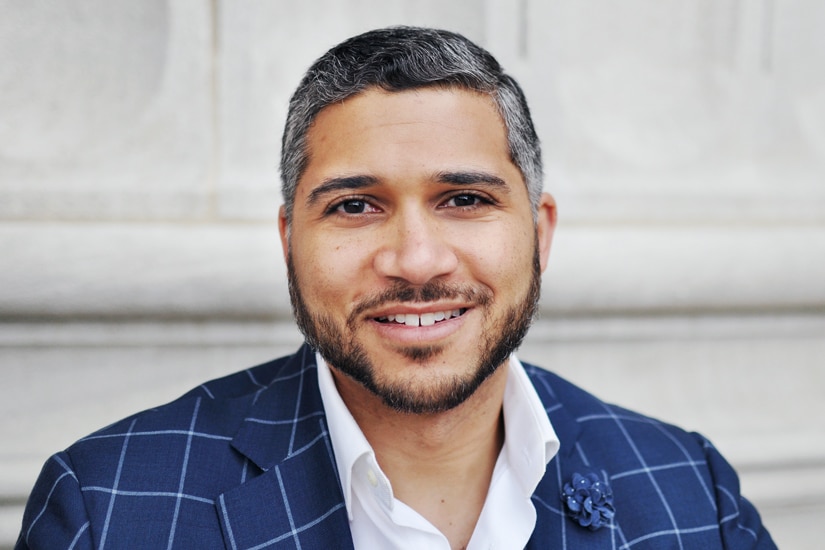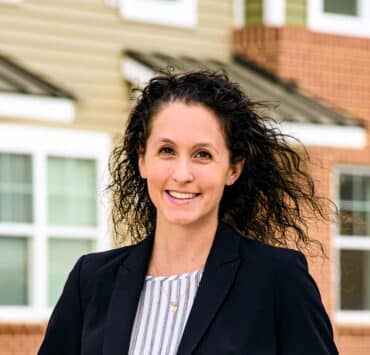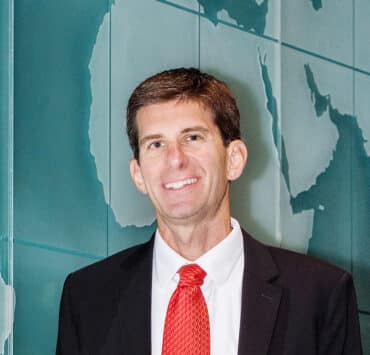|
Getting your Trinity Audio player ready...
|
Bilal Ezzeddine has embraced a nonlinear path in life. Today, he’s legal counsel and director of external affairs at Braskem, but his journey began in Detroit with stops along the way in Bahrain, the American Civil Liberties Union, and even a job selling men’s suits at Nordstrom after taking and passing the bar.
When Ezzeddine was eleven years old, he got a job as a golf caddy to earn extra money—and in some ways, that experience shaped the rest of his life. He was a black kid from a working-class family and describes his experiences at the mostly white country club where he worked as a cultural education of sorts. Ezzeddine talked to the people he caddied for and listened to their conversations about their businesses or medical practices. These experiences planted seeds in his mind for future plans. “I don’t think it was a coincidence that I was looking for other educational outlets a couple years after starting to caddy,” he says.
Ezzeddine attended public schools up until high school, but through hard work, talent, and a little serendipity, he got a prestigious Skillman Scholarship for a prep school in the Detroit suburb of Birmingham. “That kind of set my life on a certain trajectory,” says Ezzeddine. “It gave me this mindset that anything is possible—because what were the chances that I would get that opportunity? From that point on there was a certain mindset that I had: you do the best you can and assume that things will fall into place. And I carried that with me through college and law school.”
He was already set on going to college, but at his prep school, he gained exposure to a range of professions through coaches, parents, and teachers. His golf coaches—one a doctor and the other a lawyer—mentored and guided him through the process. Another physician—the father of a friend and basketball teammate—arranged for him to do paid summer work in the oncology department of one of Detroit’s main hospital systems.
Through their examples, Ezzeddine first pursued premed, but he eventually found his passion in law. He graduated from law school during the tumultuous recession following the 2008 financial crisis, passed the bar on the first try, and got a fellowship. He’s always had a passion for style, which he employed while selling suits at Nordstrom—a job where he also gained relevant experience and even legal clients.

“It set me up to have a customer service mindset toward practicing law,” he says. “That kind of familiarity with the client is more crucial than it is in private practice. When you go in-house, the clients are the businesspeople. That experience at Nordstrom primed me for being an in-house lawyer.”
He finally landed in Philadelphia at Braskem, where he started as a staff attorney, and is happy to be there. “I haven’t looked back since,” he says. “[My path] isn’t that linear, but in some ways that symbolizes my approach to life.”
Ezzeddine likes the city itself, but living there also holds a deeper meaning for him. “Being a Black male corporate attorney in the city of Philadelphia—a city with lots of social inequality—represented an opportunity for me to be a leader in my own limited way,” he says. “So the first thing I did when I got to Philadelphia was look into mentoring.”
Ezzeddine also appreciates that Braskem, a petrochemical company, is socially responsible. The company carefully considers the applications it wants to sell plastics into and was noted for its heroic efforts during the COVID-19 pandemic. Braskem sells plastics for medical-grade supplies, and personnel at two of its five plants lived in the plants for thirty days to meet the skyrocketing demand.
“That’s the kind of thing that makes me very proud to work for Braskem,” Ezzeddine says. “I can’t say I’m energetic about plastics, but I am energetic about the way [the company] does its business.”
“Being a Black male corporate attorney in the city of Philadelphia—a city with lots of social inequality—represented an opportunity for me to be a leader in my own limited way.”
At Braskem, Ezzeddine has taken his range of responsibilities in stride and expanded beyond the scope of legal counsel. After a few years of honing his expertise in corporate and commercial law, he says, he began to use the area of external affairs to go deep on community partnerships, school partnerships, and external diversity-related programs.
As a mentor himself, his responsibilities in external affairs bring together his interests. “When the opportunity was presented to become director of external affairs in addition to legal counsel, I jumped on it because it spoke to my interest in policy and it gave me some flexibility to have my work speak to my passions,” he says.
Braskem has also given Ezzeddine the space to be vulnerable and demonstrate that asking for help—something that’s not always accepted in the legal field—can be just what’s needed for growth in the industry. “I think the way that [vunerability] manifests itself is in how I show up; it’s being willing to ask for help, not being shy about asking for mentors, both within the company and outside of it,” he says.
Ezzeddine adds, “Being vulnerable is part of being authentic, and for me, it’s a good thing to do. It’s also given me credibility and currency professionally, because people want to work with others who are authentic. People want to mentor others who are authentic too.”

